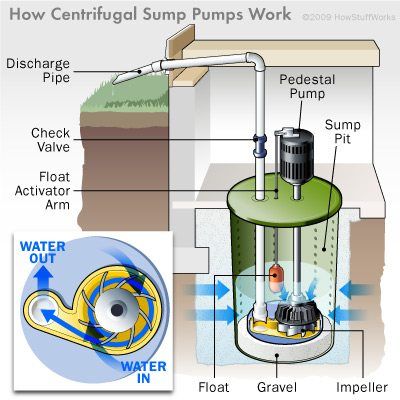Expert Pump Repairs & Installation Services: Enhancing Your Water supply's Effectiveness
Expert Pump Repairs & Installation Services: Enhancing Your Water supply's Effectiveness
Blog Article
Comprehending the Secret Parts of Effective Water Filtering Solutions

Importance of Water Purification Solution
Water filtration systems play a crucial role in ensuring accessibility to risk-free and tidy drinking water by effectively getting rid of pollutants and impurities. These systems are important in addressing the expanding concerns over water top quality and the potential wellness risks related to consuming infected water. By utilizing different filtration systems such as reverse osmosis, turned on carbon, and UV sterilization, water purification systems can efficiently remove hazardous materials like bacteria, viruses, hefty metals, and chemicals from the water supply.
In addition, water filtration systems assist to boost the taste and odor of water by getting rid of chlorine, debris, and other contaminants that can influence its quality. Well Pump Replacement. This improvement in water quality not only makes it a lot more tasty but also motivates people to consume alcohol an adequate amount of water daily, promoting much better hydration and overall health and wellness
Kinds Of Filtering Parts

Physical filters are created to literally stress out impurities from the water. These filters can be made of products like ceramic, carbon, and even sand, and they work by trapping bits larger than the filter's pores as water passes with.
Chemical filters utilize various chemical processes to eliminate pollutants from the water. Instances include activated carbon filters, which adsorb impurities, and turn around osmosis membrane layers, which make use of stress to separate impurities from the water.
Organic filters utilize living microorganisms like microorganisms or algae to break down raw material and toxins in the water. These filters are typically utilized in wastewater treatment plants or natural water purification systems.
Understanding the different types of filtration parts is critical for picking one of the most appropriate water filtering system for particular purification needs.
Feature of Debris Filters
Sediment filters play an important function in water filtration systems by effectively recording strong bits suspended in the water. These filters are typically the initial great post to read line of protection in a filtering system, removing bigger bits such as sand, silt, dirt, and corrosion prior to the water moves via finer purification stages. By capturing these debris, the filters prevent them from getting to downstream elements, thus expanding the life expectancy and efficiency of the whole system.
Disregarding this maintenance can lead to blocking, lowered water flow, and jeopardized purification efficiency. In general, debris filters are indispensable elements that add dramatically to the performance of water filtration systems.
Function of Turned On Carbon Filters
Playing an essential function in water filtering systems, turned on carbon filters are instrumental in eliminating pollutants and impurities from the water supply. These filters are designed to adsorb and catch a variety of pollutants, including chlorine, unstable organic compounds (VOCs), pesticides, and herbicides. The triggered carbon product has a big surface location, enabling the reliable capturing of impurities via a procedure called adsorption. As water goes through the filter, the turned on carbon holds and brings in onto the contaminations, making certain that the water that appears beyond is cleaner and more secure for intake.
Triggered carbon filters are extremely effective at boosting the preference and odor of water by decreasing chemicals that can affect its high quality. They are also qualified of getting rid of specific heavy steels like lead and mercury. Furthermore, these filters can help prevent the build-up of germs and algae in water, further boosting its general quality. As a result of their adaptability and integrity, triggered carbon filters are an essential part in making sure that water is purified to the highest possible requirements before getting to consumers.
Recognizing Reverse Osmosis Systems
Reverse osmosis systems are innovative water filtration systems that employ an advanced procedure to get rid of contaminants and impurities from drinking water. These systems work by applying stress to the water, compeling it via a semi-permeable membrane layer.
Furthermore, reverse osmosis systems are fairly low-maintenance and can be installed under the sink or in a main purification system, providing hassle-free access to tidy water throughout the house. In general, recognizing exactly how reverse osmosis systems work can help individuals make notified decisions about their water filtering needs.
Final Thought
In conclusion, efficient water filtration systems are vital for guaranteeing tidy and safe drinking water. By recognizing the function and function of each component, individuals can make enlightened look at here decisions when choosing a water purification system.
Water filtration systems play a crucial function in making certain access to safe and clean alcohol consumption water by effectively eliminating pollutants and impurities. By making use of various filtering devices such as reverse osmosis, activated carbon, and UV sterilization, water filtering systems can successfully remove hazardous compounds like microorganisms, infections, heavy metals, and chemicals from the water supply.
Sediment filters play a vital duty in water purification systems by effectively catching solid bits put on hold in the water (Water Softeners).Playing a critical duty in water filtration systems, activated carbon filters are instrumental in removing pollutants his response and pollutants from the water supply.Reverse osmosis systems are sophisticated water filtering systems that utilize an advanced process to eliminate pollutants and pollutants from drinking water
Report this page